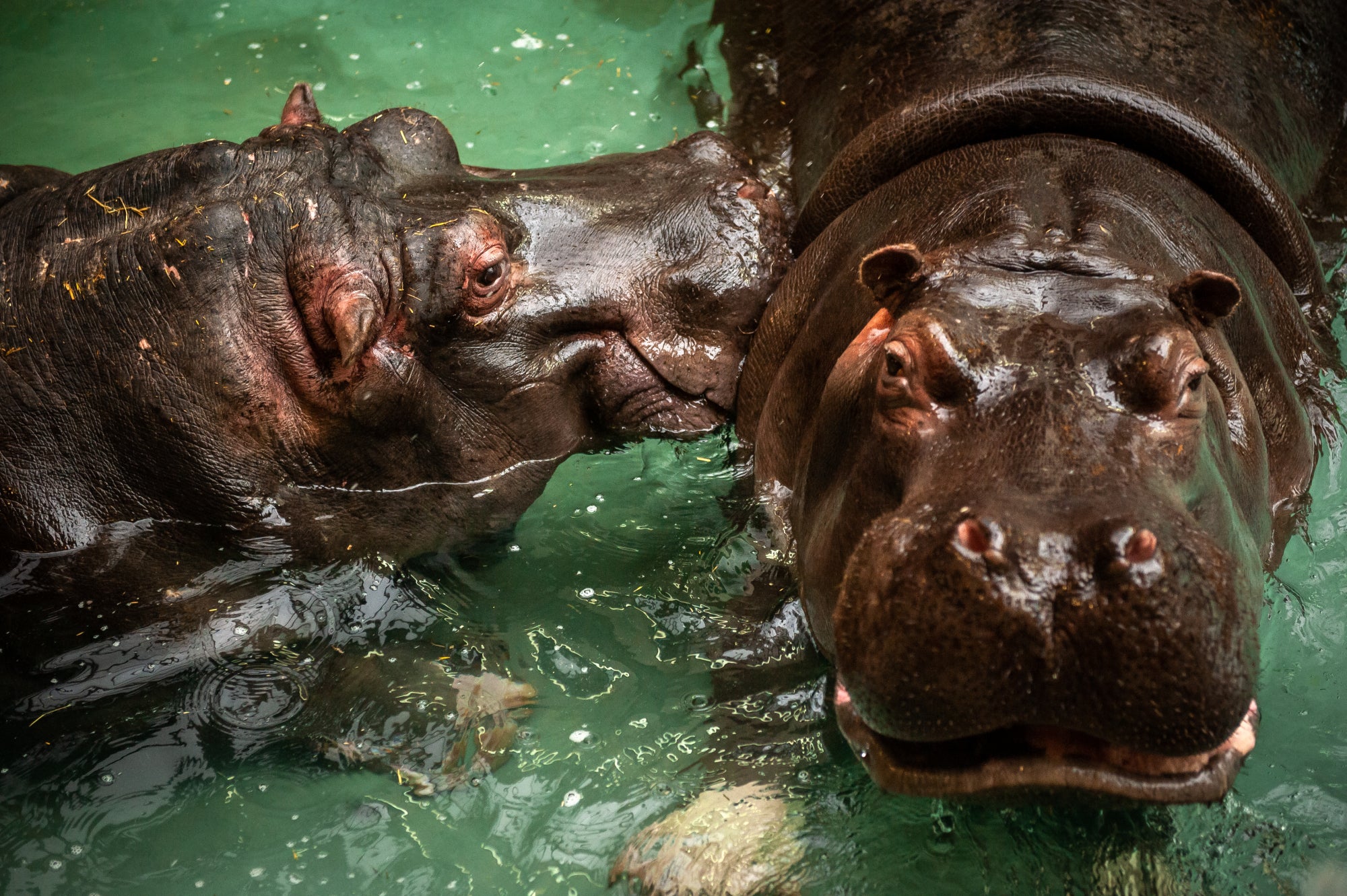Two hippos at Belgian zoo test positive for Covid in first for species
The zoo is currently investigating how the virus spread to its hippos

Your support helps us to tell the story
From reproductive rights to climate change to Big Tech, The Independent is on the ground when the story is developing. Whether it's investigating the financials of Elon Musk's pro-Trump PAC or producing our latest documentary, 'The A Word', which shines a light on the American women fighting for reproductive rights, we know how important it is to parse out the facts from the messaging.
At such a critical moment in US history, we need reporters on the ground. Your donation allows us to keep sending journalists to speak to both sides of the story.
The Independent is trusted by Americans across the entire political spectrum. And unlike many other quality news outlets, we choose not to lock Americans out of our reporting and analysis with paywalls. We believe quality journalism should be available to everyone, paid for by those who can afford it.
Your support makes all the difference.Two hippos at the Antwerp zoo in Belgium have tested positive for Covid-19 in the first reported instance of a novel coronavirus infection in the species.
The two hippos, 41-year-old Harmein and 14-year-old Imani, showed no symptoms other than runny noses, according to the zoo.
“The hippopotamus building was immediately closed after the first positive test and will temporarily remain closed until Hermien and Imani test negative,” the zoo said in a statement on Facebook on Friday.
Infections with Covid have so far been reported in several animals, including in felines like lions and tigers and other mammals including deer.
Felines in several zoos across the world have also died after contracting the infection.
Three snow leopards died at a zoo in Nebraska last month after suffering from the disease and two Asiatic lions that tested positive died at an Indian zoo in June.
Pets such as cats, dogs and ferrets have also carried the virus after contact with infected humans in some cases. There have also been reports of Covid in primates, hyenas and otters.
While the risk of the virus spreading from animals to humans is low, people could still transmit the virus to pets and other animals, according to the US Centres for Disease Control and Prevention.
But the new report is likely the first such instance of a coronavirus infection in hippos.
“To my knowledge, this is the first known contamination in this species. Globally, this virus has mostly been reported in great apes and felines,” the zoo’s veterinarian Francis Vercammen said.
Antwerp zoo said it is currently investigating how the virus spread to its hippos.
The hippos’ caregivers have already tested negative for Covid and “none of them have recently contracted the disease,” the zoo’s statement said.
Harmein and Imani are currently “doing well” and will continue to be monitored by their caregivers “who are implementing even stricter safety measures,” the zoo noted.
Jeremy Farrar, director of charitable foundation Wellcome Trust and one of Britain’s most senior scientific figures, said in a tweet that is very important to understand the “full range of potential animal reservoirs” for the novel coronavirus in the wild as well as in the domesticated animal sector.
A large animal reservoir could mean multiple paths for the virus to evolve, he explained.
Join our commenting forum
Join thought-provoking conversations, follow other Independent readers and see their replies
Comments